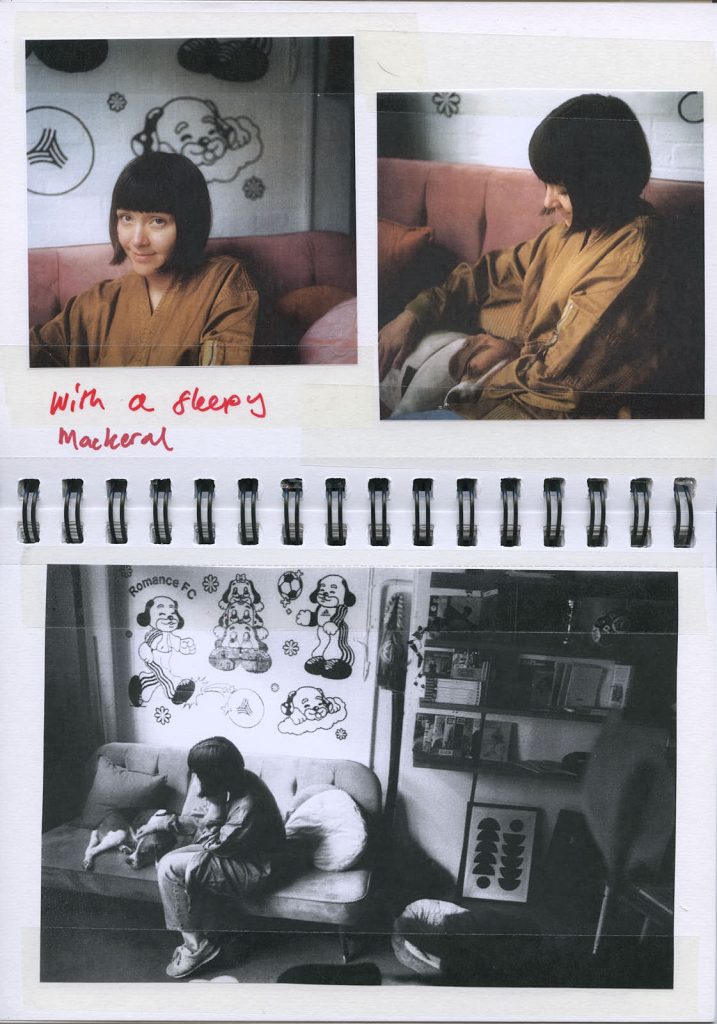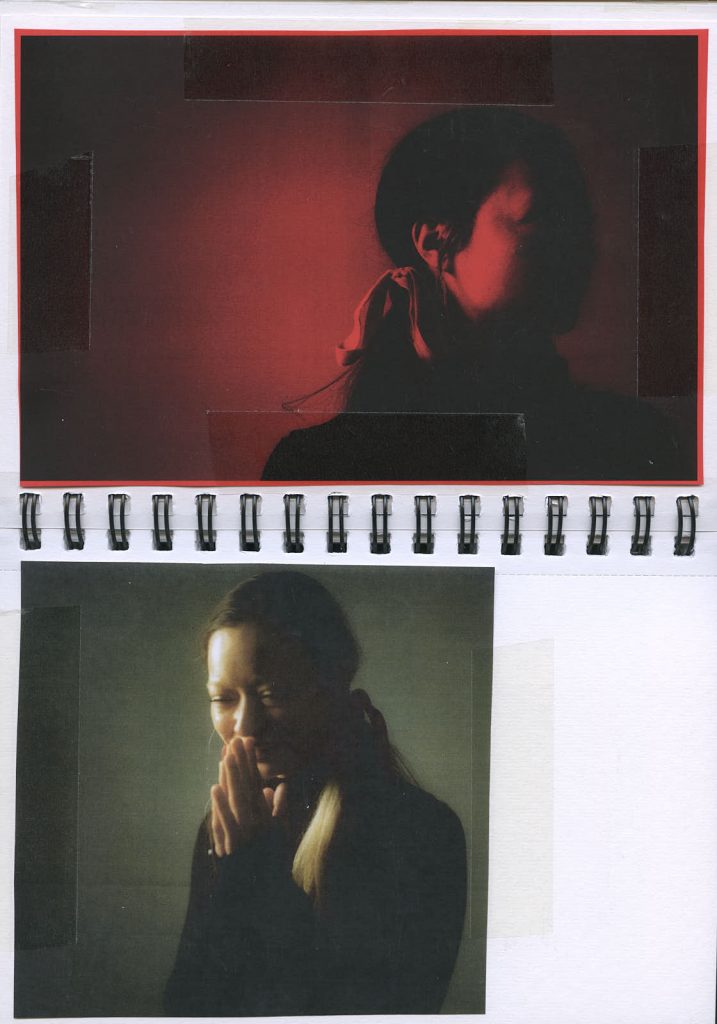The Basement meets the new music collective uniting East and Southeast Asian artists and industry professionals in the UK, in celebration of culture and in pursuit of change.
Walking into an ESEA Music meeting is like finally stepping onto the playground as a kid after counting down the minutes till your lesson is over and break time begins. The air is buzzing with energy – people are rushing around excitedly, embracing strangers they’ve only just met like they’ve known each other forever. Artist Lucinda Chua has just rushed through the door, late from erhu practice, carrying the Chinese instrument under her arm in an oblong case. Someone has brought out a birthday cake.
Looking out onto this sea of Asian faces that remind you of your own — smiling, laughing and drinking beer — the feeling is exhilarating and new, but beautifully familiar. A little, I guess, like coming home.
This is ESEA Music, a community of UK-based East and Southeast Asian (“ESEA”) artists and industry professionals. The collective was founded in September 2021 by Tiger Hagino Reid, a Japanese-British campaign manager, and Hiroki Shirasuka, an artist manager. They had marinated on an ESEA collective over years of working in British music, and finally brought it to life in the wake of the pandemic.


“The British music industry is a predominantly white space”, Tiger says, speaking from over 10 years of experience. “All my bosses have been white, and apart from Hiroki and a handful of others, I didn’t know of many ESEA people while coming up. Hiroki and I started out with a spreadsheet – there were literally 10 people on it at first.”
Members of ESEA Music echo these sentiments. For DJ, radio presenter and promoter Oh Annie Oh, “being involved in these spaces means usually being the only ESEA person there, and feeling like ‘the other’ a lot.” Emma-Lee Moss (a.k.a. Emmy the Great) wears many hats as a musician, writer and composer/librettist. But, as an Asian woman, she recalls feeling flattened in her identity. “Early in my career, I used to get mistaken for my bandmate who also had Chinese heritage,” she says. “I once saw my name as the caption for a photo of her in a music paper.”
ESEA Music has a specific focus on the British music industry and supporting its members with meaningful representation, activism and community. The group is heavily inspired by, and in constant dialogue with, its peers in Eastern Margins, a collective for ESEA underground and club musicians, and activist groups like ESEA Sisters, besea.n and Dear Asian Youth London.
“For me, setting up this group comes from wanting to change things,” says Tiger. “But the group is for everybody, and everybody has their own journey and relationship to their heritage. Some people may not want to be full-on activists, and just want to connect with others like them. We’re not a monolith – this is a broad church. Artists that don’t even resonate with each other’s music can be in the same group!”



The group, by its name, also speaks specifically to the ESEA-British cultural identity. In the UK, “Asian” has traditionally stood for South Asian, in contrast to the phrase “Asian American” which intuitively calls ESEA people to mind. “Groups like us, Eastern Margins and ESEA Sisters organise around the “ESEA” identity — especially as a reaction to what happened during Covid and the Stop Asian Hate movement — because we want to make our people feel proud to be East and Southeast Asian in Britain, and free to be whatever version of that is right for them”.
Tiger is excited about the creative groundswell that opens up when artists explore their heritage and infuse it in their music. “ESEA-British culture is so rich, and it will be even stronger if it is nurtured and taken seriously. Look at Rina Sawayama. Seeing a Japanese-British, pansexual woman sing ‘Shut the fuck up’ to racist white guys she’s dated in a music video connects in such a different way for us, you know? There’s a thousand more versions of that music waiting to be expressed.” Music closely intertwined with its author’s heritage is only rising faster to the fore – look no further than UK artists Congee, Miso Extra and muizyu, whose Chinese, Japanese and Cantonese influences are central to their artistry.
“Whoever the next Rina Sawayama or beabadoobee is – if they ask for a Japanese project manager or a Filipino PR person, someone who understands them and can advocate for them, they will know these people exist and where to find them.”
Lucinda, the erhu-toting musician, has only recently gone solo (she released her debut solo record just last year), and finds inspiration in the “confidence, openness and vulnerability of the ESEA artists coming up now”. Growing up with English, Malaysian and ancestral Chinese roots, she “didn’t have a community like this, or the language and tools to find solidarity.”


Annie found “a sense of wholeness” in the collective, something she didn’t even realise was missing until the group was formed. At the first meeting, Emma-Lee found “relief, in a way I can’t really describe”. Despite having bonded with other ESEA people in the industry, “seeing us all together in one space made me realise that I’m really not alone.,” she explains. “Perceived isolation is a really scary thing – you stop making connections because you’re so used to it. I feel like this group is breaking that down, and it is revelatory.”
This objective guides the group at every turn. Members — now hailing from all corners of the music industry, from XL Recordings, Ninja Tune and Sony Music to Giant Artist Management, Spotify, BBC and Platoon — gather in a different music institution for each meeting, to literally “take up space” in different places.
Next to launch is “SESAME”, a mentorship scheme designed to nurture future ESEA talent across artists and industry. The scheme will focus on building concrete support systems for better mental and creative health, and achieving equality in the music industry by protecting the paths to sustainable careers for underrepresented groups.




The group even has ambitions for representation on music industry trade bodies. “The ‘elders’ in the group are in their late 30s, at a push”, Tiger notes. “They’re that young, yet they’re the most ‘senior’ people we have so far! That itself is a big sign that we need to get onto these boards and enact change at that level.”
“The more we meet, the more important I realise it is to just create a community like this,” Tiger smiles. “We don’t even know what else we are capable of yet!”
Photography
Milo Van-Giap

What Went Down: eBay in Session with Louis Holsgrove x The Basement
- Community
- Interview
- 15 minute read

PUMA’s PFW Pop-Up Proved They’re Not Playing Games
- Fashion
- Feature
- 8 minute read




